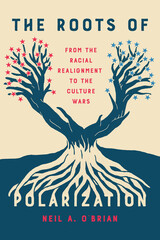
Edited by Martin E. Marty and R. Scott Appleby
Around the world, fundamentalist movements are profoundly
affecting the way we live. Misinformation and misperception
about fundamentalism exacerbate conflicts at home and abroad.
Yet policymakers, journalists, students, and others have
lacked any comprehensive resource on the explosive phenomenon
of fundamentalism. Now the Fundamentalism Project has
assembled an international team of scholars for a multivolume
assessment of the history, scope, sources, character, and
impact of fundamentalist movements within the world's major
religious traditions.
Fundamentalisms and Society shows how fundamentalist
movements have influenced human relations, education, women's
rights, and scientific research in over a dozen nations and
within the traditions of Islam, Judaism, Christianity,
Buddhism, and Hinduism. Drawn from the fields of
anthropology, sociology, history of religion, and history of
science, the contributors cover topics such as the
educational structures of Hindu revivalism, women in
fundamentalist Iran and Pakistan, and the creationist cosmos
of Protestant fundamentalism. In a concluding essay, William
H. McNeill situates contemporary fundamentalisms within a
world historical context.
The Fundamentalism Project, Volume 2
Martin E. Marty and R. Scott Appleby direct the
Fundamentalism Project. Marty, the Fairfax M. Cone
Distinguished Service Professor of the History of Modern
Christianity at the University of Chicago, is the senior
editor of the Christian Century and the author of
numerous books, including the multivolume Modern American
Religion, also published by the University of
Chicago Press. Appleby, a research associate at the
University of Chicago, is the author of “Church and
Age Unite!” The Modernist Impulse in American
Catholicism.


The authors of these eight essays examine the social and ethical implications of new biomedical technologies—from behavior control to organ transplants and human experimentation. They also examine the shortcomings in our system of medical care—from the disappearance of the general practitioner to problems of medical care for the poor.
In an introductory essay, Irene Taviss analyzes the allocation of resources to biomedical research and medical care and considers problems related to human experimentation, organ transplantation, and genetic and behavior control. She also discusses possible controls in these fields—legal controls as well as formal professional codes and informal professional practices. In discussing the rare disease phenylketonuria, a cause of mental retardation, Samuel P. Bessman and Judith P. Swazey point out the dangers of a hasty decision to institute legislative controls of diseases on the basis of inadequate scientific evidence. In separate essays, Edmund D. Pellegrino and Louis Lasagna examine the problems of establishing professional controls over different kinds of human experimentation. Everett P. Mendelsohn, Judith P. Swazey, and Irene Taviss present an overview of the new behavior control technologies and point out the dilemmas that have resulted from these developments. Victor Sidel's essay examines the effects of new technologies on the practice of medicine and the potential effects on society. The two final essays deal with the organization and delivery of medical care. Mark G. Field reports on the problems caused by medical specialization and the disappearance of the general practitioner and proposes some remedies. John H. Knowles analyzes medical manpower shortages in various specialties and the effects of these shortages on the health care of the nation.

READERS
Browse our collection.
PUBLISHERS
See BiblioVault's publisher services.
STUDENT SERVICES
Files for college accessibility offices.
UChicago Accessibility Resources
home | accessibility | search | about | contact us
BiblioVault ® 2001 - 2024
The University of Chicago Press









